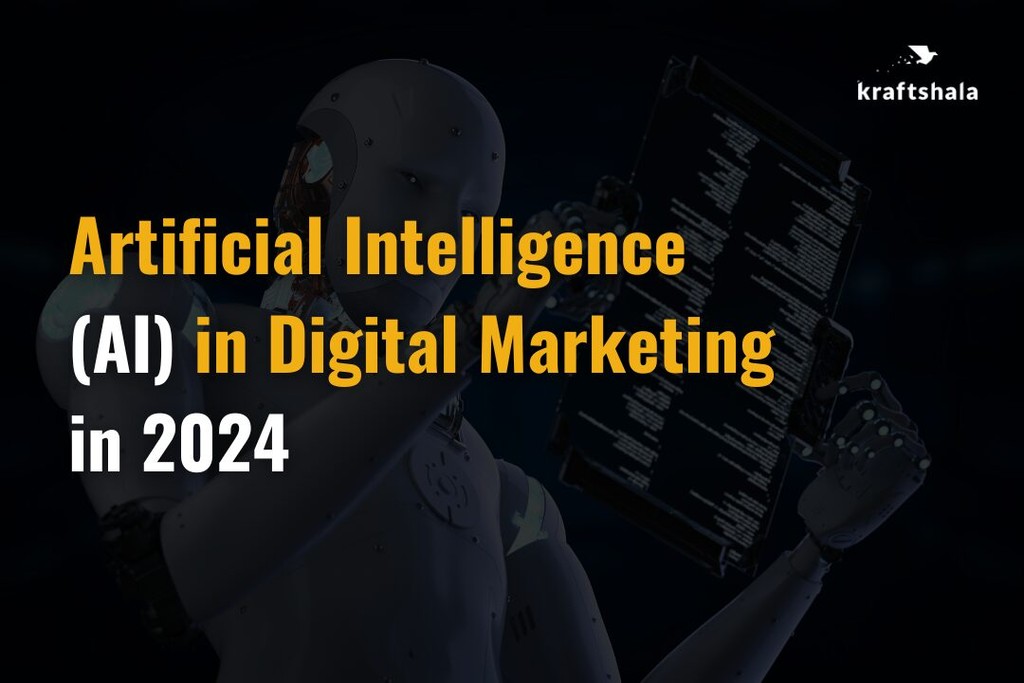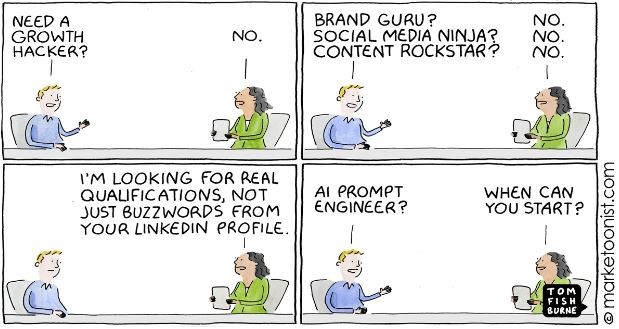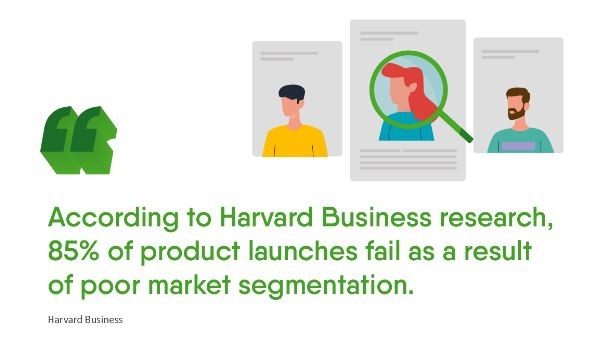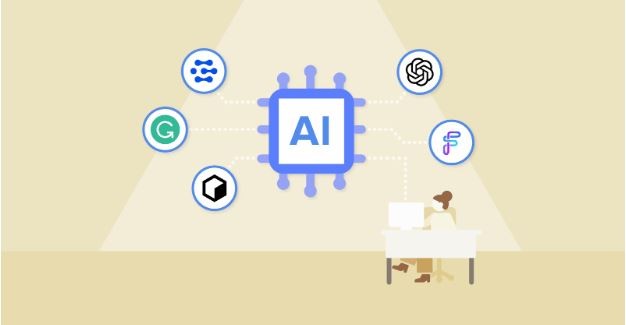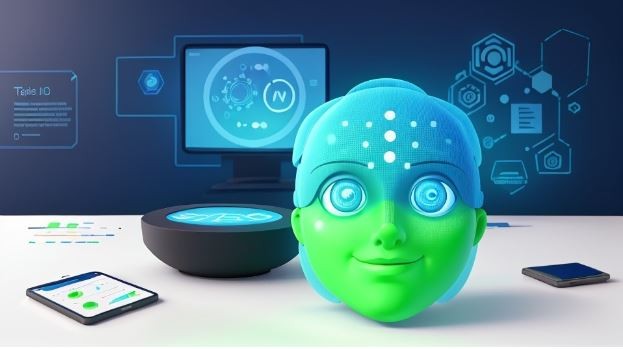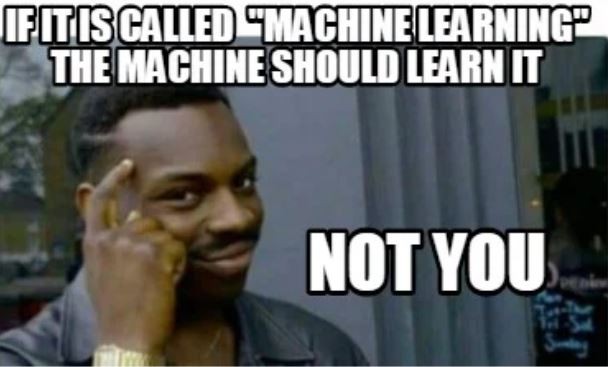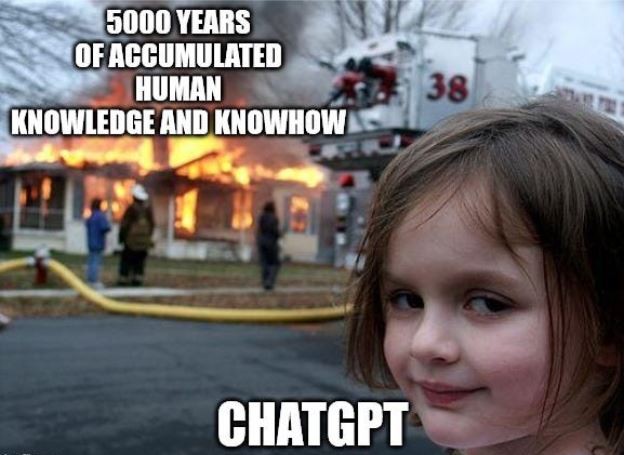Artificial Intelligence (AI) In Digital Marketing – Types and Use
Table of contents
- Understanding the Role of Artificial Intelligence in Digital Marketing
- Applications of AI for Digital Marketing
- Identifying AI Tools for Digital Marketing
- The Thin Line between a Balanced Approach and Over-Reliance on AI in Digital Marketing
- Pros and Cons of Artificial Intelligence in Digital Marketing
- Developing the Necessary Skills for AI-Driven Digital Marketing
- Shaping the Future of Digital Marketing with Responsible AI Adoption
In today’s fast-paced world, flashy titles like “growth hacker” and “social media ninja” often overshadow the need for genuine expertise. Yet, in a digital age dominated by AI, the demand for professionals who can effectively navigate and leverage artificial intelligence in digital marketing is undeniable. However, as I delved deeper into the digital landscape, I stumbled upon a startling statistic that caught my attention: did you know that a staggering 67% of marketers are increasingly relying on AI for digital marketing? This revelation begs the question: what are the risks of such heavy dependence on AI tools for digital marketing?
Hey marketers! Curious about AI in digital marketing? Let’s explore its applications, from predictive analytics to content creation. We’ll tackle the opportunities and challenges, ensuring a balance between innovation and human creativity. In this blog, we’ll dive into digital marketing and AI, focusing on effective use while avoiding over-reliance. Uncover insights and strategies for leveraging artificial intelligence and digital marketing tools, from SEO optimization to customer segmentation. Let’s thrive in the AI-driven landscape while maintaining our human touch.
Understanding the Role of Artificial Intelligence in Digital Marketing
The role of AI in enhancing digital marketing strategies
Have you ever wondered how artificial intelligence jazzes up our digital marketing game? AI works like a magic wand, helping us analyze heaps of data lightning-fast. With AI by our side, we’re like digital detectives, uncovering juicy insights about our audience preferences and behaviors. It’s like having a super-smart sidekick, guiding us to create personalized campaigns that hit the bullseye every time. So, buckle up to unleash the power of artificial intelligence in your digital marketing strategies!
Importance of maintaining a balanced approach to AI integration
With the integration of artificial intelligence in digital marketing, it’s like having a turbo boost for your strategies. But here’s the deal: balance is key. Sure, AI can crunch numbers and analyze data like a pro, but it’s our human creativity that adds the magic touch. Think of AI as your trusty sidekick, not the entire superhero team.
While AI offers efficiency and insights, over-reliance on AI tools for digital marketing can lead to a loss of creativity and authenticity. Striking the right balance ensures optimal utilization of artificial intelligence and digital marketing capabilities while preserving the human touch, fostering genuine connections with the audience.
Applications of AI for Digital Marketing
Content Creation: Leveraging AI while preserving human creativity and authenticity
AI is like the ultimate digital sidekick in digital marketing! It dives into data, zaps away mundane tasks, and sprinkles a touch of personalization to everything. Picture it as your secret weapon that not only fine-tunes content but also predicts what your audience craves, all while boosting your marketing mojo and making your ROI soar!
Let’s talk about AI’s role in content creation. It’s like having a creative assistant, brainstorming ideas and crafting copy at lightning speed. But here’s the twist: we can’t forget the human touch. AI can churn out content, but it’s our unique voice and creativity that truly engage our audience. So, it’s very important to harness AI’s efficiency while infusing our content with authenticity and personality. By leveraging artificial intelligence in digital marketing, we can create powerful campaigns that resonate deeply with our audience.
Image Creation: Balancing AI-generated visuals with human-designed content
Let’s dive into another magical functionality of AI in digital marketing: image creation! Picture this: AI conjures up stunning visuals in the blink of an eye, but the twist lies in the need for a human touch. While AI crafts eye-catching graphics, it’s our creativity that adds the soul. So, let’s strike the perfect balance, blending AI-generated visuals with our unique designs.
Together, we’ll create visual masterpieces that captivate our audience’s imagination and leave a lasting impression. By leveraging artificial intelligence and digital marketing strategies, we can enhance our visual content while maintaining authenticity and creativity.
Customer Service and Support: Utilizing AI chatbots while ensuring personalized and empathetic interactions
Continuing our exploration of artificial intelligence in digital marketing, let’s delve into its application in customer service and support. AI chatbots serve as invaluable assets, providing instantaneous responses and addressing customer inquiries round-the-clock. However, it’s essential to maintain a balance by ensuring personalized and empathetic interactions.\
By leveraging AI’s capabilities, businesses can streamline customer support processes while maintaining a human touch. These AI-powered chatbots not only enhance efficiency but also cultivate positive customer experiences, fostering loyalty and satisfaction in today’s competitive marketplace. Integrating AI for digital marketing and customer service ensures that businesses stay ahead while keeping the customer at the heart of their strategies.
One example of a brand successfully using AI in customer support is Sephora. Sephora implemented an AI-powered chatbot called “Sephora Virtual Artist” to assist customers with product recommendations, makeup tutorials, and personalized beauty advice.
This chatbot utilizes AI algorithms to understand customer queries and preferences, providing tailored responses and enhancing the overall shopping experience. By integrating artificial intelligence in digital marketing and customer support, Sephora has improved customer engagement and satisfaction, demonstrating the powerful impact of AI tools for digital marketing.
Customer Segmentation: Using AI algorithms as a complement to human-driven segmentation strategies
Building on our exploration of AI’s applications, let’s delve into its role in customer segmentation. AI algorithms serve as powerful complements to human-driven strategies, enabling marketers to analyze vast amounts of data and identify nuanced customer segments with precision.
By leveraging artificial intelligence in digital marketing for segmentation, businesses can tailor their marketing efforts more effectively, delivering personalized experiences that resonate with specific audience segments. Utilizing AI for digital marketing in this way enhances targeting accuracy and fosters deeper connections with customers.
Effective segmentation is vital, as 85% of product launches fail due to poor market segmentation, underscoring its significance. Yet, artificial intelligence presents a solution, analyzing data to unveil precise audience segments, revolutionizing digital marketing strategies. By harnessing AI’s capabilities, businesses can refine their segmentation approach, ensuring targeted and personalized marketing efforts that resonate with specific audience segments.
SEO and Data Analytics: Integrating AI insights with human analysis for comprehensive decision-making
Continuing our journey through the wonderland of artificial intelligence in digital marketing, let’s zoom into its role in SEO and data analytics. Picture this: AI and humans teaming up like Batman and Robin, but with fewer capes and more keyword research! AI’s superpowers analyze mountains of data, while humans sprinkle in their creative flair.
Together, they form an unstoppable duo, making data-driven decisions with finesse and flair. So, let’s embrace this dynamic partnership, leveraging AI’s insights alongside our human intuition to conquer the digital landscape like true marketing superheroes! With AI tools for digital marketing and SEO optimization, we can soar to new heights of success.
Identifying AI Tools for Digital Marketing
Overview of AI-powered tools available for digital marketing tasks
From content creation to data analysis, a plethora of AI-driven solutions revolutionize marketing strategies. These tools harness machine learning algorithms to automate processes, enhance efficiency, and unlock valuable insights.
One such tool is Phrasee, utilizing AI for email marketing by generating compelling subject lines that boost open rates.
Another example is Chat GPT, an AI chatbot that engages customers in personalized conversations, enhancing customer service and support.
Additionally, platforms like Acquisio leverage AI for optimizing digital advertising campaigns, maximizing ROI.
These tools exemplify AI’s versatility in automating processes, analyzing data, and driving results across various marketing channels.
Emphasizing the need for judicious selection and usage of AI tools to avoid dependency
Caution is paramount when choosing and employing AI tools to avert excessive reliance. Though AI promises unmatched efficiency and insights, dependency may suffocate creativity and impede adaptability. Integrate AI cautiously to prevent it from becoming an insurmountable force, overshadowing human intuition. Failure to do so could lead to innovation stagnation, with AI morphing from ally to tyrant.
The Thin Line between a Balanced Approach and Over-Reliance on AI in Digital Marketing
Navigating the fine line between a balanced approach and over-reliance on AI in marketing is crucial for success. Let’s explore some case studies that exemplify this delicate balance.
Case Study 1: Amazon’s Recommendation Engine
Amazon utilizes AI algorithms to recommend products to customers based on their browsing and purchase history. While AI drives personalized recommendations, human oversight ensures that recommendations align with customer preferences without becoming intrusive.
The takeaway: By integrating artificial intelligence with human judgment, Amazon delivers personalized experiences while respecting customer privacy.
Case Study 2: Netflix’s Content Recommendation System
Netflix employs artificial intelligence to suggest movies and TV shows tailored to each viewer’s tastes. However, Netflix also recognizes the importance of human-curated content and incorporates human feedback to refine its recommendations.
The lesson learned: AI enhances content discovery while human input ensures diverse and engaging recommendations.
Analyzing the impact of over-reliance on AI in these examples reveals potential pitfalls such as loss of creativity, privacy concerns, and algorithmic biases.
The key takeaway is the importance of maintaining human oversight and creativity alongside AI-driven insights. By striking a balance between artificial intelligence and human judgment, businesses can leverage the benefits of AI while preserving authenticity, creativity, and ethical considerations in marketing endeavors.
Pros and Cons of Artificial Intelligence in Digital Marketing
Pros and cons of AI in digital marketing present a complex landscape, offering both opportunities and challenges to marketers.
Pros of AI in Digital Marketing
- Efficiency: AI automates repetitive tasks, saving time and resources for marketers.
- Personalization: AI analyzes data to deliver tailored experiences, enhancing customer engagement and satisfaction.
- Insights: AI algorithms uncover valuable insights from vast datasets, enabling data-driven decision-making.
- Scalability: AI-driven campaigns can scale seamlessly to reach a wider audience without compromising effectiveness.
Cons of AI in Digital Marketing
- Dependency: Over-reliance on AI may lead to loss of creativity and human touch in marketing efforts.
- Privacy Concerns: AI collects and analyzes extensive customer data, raising ethical and privacy concerns.
- Complexity: Implementing and managing AI technologies requires specialized skills and resources.
- Bias: AI algorithms may perpetuate biases present in the data, leading to unfair or discriminatory outcomes.
Thus, AI offers significant advantages in digital marketing, marketers must navigate the potential drawbacks with caution. Striking a balance between AI-driven efficiency and human creativity is essential for maximizing the benefits of AI while mitigating its limitations.
Developing the Necessary Skills for AI-Driven Digital Marketing
In the fast-paced realm of AI-driven digital marketing, mastering essential skills is vital for success. Here’s a concise guide:
- Data Analysis: Learn statistical analysis and data visualization for interpreting AI-generated insights.
- Programming: Grasp basic coding in Python and R for understanding AI algorithms.
- AI Tools: Familiarize with chatbots, predictive analytics, and content optimization tools through online courses.
- Creativity: Cultivate brainstorming and design skills alongside AI proficiency.
- Adaptability: Stay updated on AI trends and consumer behaviors through webinars and professional development.
By honing these skills, marketers can leverage AI effectively, driving innovation and success in digital campaigns.
Shaping the Future of Digital Marketing with Responsible AI Adoption
Artificial intelligence holds immense potential in transforming digital marketing, offering efficiency, personalization, and valuable insights. However, the challenge lies in avoiding over-reliance on AI, which can stifle creativity and adaptability. To effectively leverage AI, mastering essential skills such as data analysis, programming, and creativity is paramount. Fortunately, these skills can be acquired through dedicated marketing courses, empowering marketers to strike a balance between AI-driven automation and human intuition. By prioritizing human oversight and intervention, businesses can harness the power of AI while maintaining authenticity and innovation in their marketing strategies.



